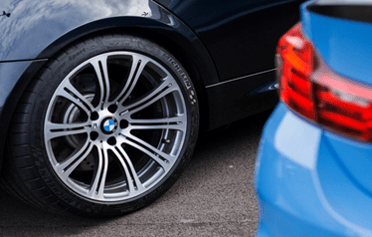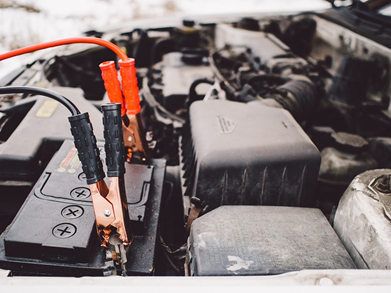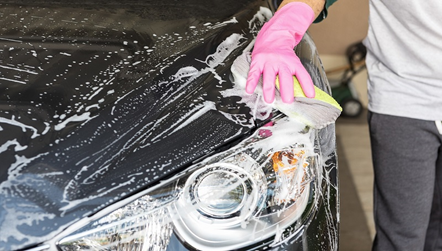A car is one of your biggest investments after a home. While owning a car can prove to be beneficial in cutting out travelling cost, it is also necessary to ensure that your car does not increase your expenses instead with additional repair costs.

Owning a car comes with the attached responsibility of having to maintain it unless you don’t mind additional costs or purchasing a new car to replace existing problems with your current car.
Maintaining your vehicle is important as it ensures the smooth functioning of the same and avoids repaid costs.
Most car owners find it difficult to understand a car’s tech specs and hence find it difficult to maintain the same.
This article is meant to help you understand the basic maintenance requirements of your vehicle to ensure its long life.

Check your tyres:
Tyres play an important role in the functioning of your vehicle as it cannot function with damaged or flat tyres. Hence it is necessary to have them checked on a regular basis. Include a quick check on your tyres on a daily basis just before travelling to work or on your way back.
You can also check them once a month with a gauge that is meant to inspect tyre pressure. Tyres also need to be balanced and rotated on a regular basis. Do this by using the advice of the manufacturer.

![]()
Drive your vehicle cautiously:
While maintaining the parts of your car is important, it is also essential to ensure that you are not driving in a way that threatens the life of your car.
Most problems can actually be avoided by cautious driving. Not only is this safer, but it is also beneficial for the maintenance of your vehicle.
Avoid rough handling and rash driving for your vehicles longer life with lesser expenses.
Check level of fluids:
Fluids play an essential role in the smooth functioning of your vehicle and avoid strain on your vehicles engine and other parts. Your vehicle can also have a major break down if your fluid levels are too low.
Remember to check your brake fluids, power steering fluid, engine coolant and transmission fluid levels from time to time. If it is difficult for you to do so, have a mechanic check the same to ensure that that the fluid levels are not low and straining your vehicle.

Take care of your windscreen and its wipers:
The windscreen is part of the basic structure of a car and can compromise the safety of passengers with the smallest crack or chip. It also protects you from flying pieces of debris or rain while travelling.
It is important to ensure that the windscreen is not dirty or damaged and that your wipers are functioning properly. This ensures maximum visibility helping you drive better.
Fix windscreen damages or chips immediately to avoid them from getting worse and becoming a bigger expense.
Replace the air filter:
Despite not causing a noticeable problem other than looking dirty, air filters can impact the performance of your car’s engine when clogged and dirty.
Take the time to check your air filter status and if it is partially or fully clogged have them replaced. Replacing the same every 3 months is a must for every average used car. A clean air filter can also add to the efficiency of your fuel.

Check your battery regularly:
Batteries tend to give way after a period of time. This makes it necessary to inspect the same and ensure that the terminals aren’t corroded. Remember to check for proper connection.
Battery problems tend to become more expensive to fix with time as putting off a repair can worsen the situation.
Check and cleanse the engine:
The engine is the heart of your vehicle which means that functioning without it is impossible. Check the engine on a timely basis to ensure it is functioning properly.
Inspecting your engine on a regular basis will help you spot any leakage or problems easily. This helps take care of the situation immediately. You can either clean this part of your vehicle yourself or get a professional to help you with the same.

Avoid parking in the sun:
While parking in the sun may seem harmless except for the heat, it can damage your vehicle intensely. The sun’s harmful UV rays are known to damage the interiors of your vehicle causing them to wear out even faster.
To avoid the same find a shady place to park your car. While parking under a tree may make the exteriors a little dirty, it’s always easier to wash the exterior dirt than pay for changing the interior.

Wash your vehicle:
Try to wash your car on a regular basis to avoid corrosion. You can set aside one day in your week that is dedicated to washing your car. While you are at it, remember to clean the insides and wax your vehicle regularly to protect its paint. This helps avoid stale odour inside the car and make your car look newer than it is.
Check your coolant:
Check the level of water in your vehicle regularly to make sure that you have enough coolant. This is especially useful during the winter as the water can tend to freeze. Wait for the engine to completely cool down before adding any fluid.
Change the oil:
One of the most important changes to make is that of oil over time. Regularly changing the oil helps your vehicle perform without your engine struggling. Old oil can get mucky and clog up the passage adversely affecting the engine of your vehicle. The friction coupled with heat then affects the internal functioning of your car that can incur extra expenses.
Change spark plugs:
Although it is recommended to be changed only after 50,000 kilometres, it is important to change your spark plugs regularly. Dirty spark plugs reduce the power and efficiency of your vehicle and won’t fire properly.
Though you might not notice any affected performance at first, it is important not to ignore it. Stressing the engine with damaged or worn out spark plugs can result in a very expensive bill.
Check for dash light indications:
Dash lights are meant to warn you when there is a problem with your vehicle, which means that, if you are seeing a dash light, pay attention to the importance of the same and have your vehicle checked immediately. Don’t underestimate the signals that your vehicle gives you to tell you something is wrong.
Following this simple maintenance guide can help you promote a longer life for your vehicle while avoiding useless costs and expenses. You can avoid fixing repairs by avoiding damage in the first place.
---
The Author:
Darren Pay and Justin Oakes are the founders of A1 windscreens – a renowned company known for its services of car windscreen repair and replacement.

